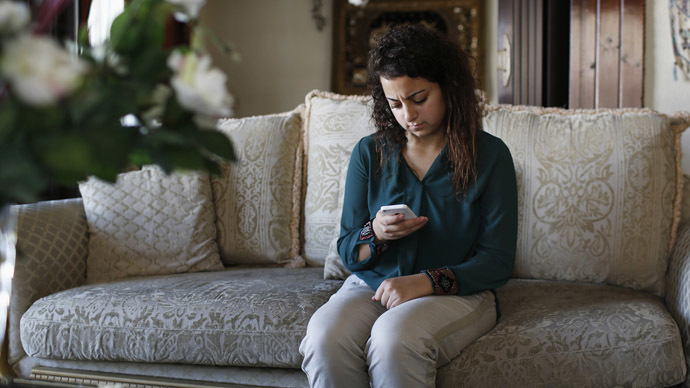Sexed-up social media damaging girls’ mental health, study suggests

Young girls’ mental health is being damaged by the vast number of explicit and sexualized images on social media and in advertising, leading to a spike in anxiety according to new figures.
The study by University College London (UCL) and the Anna Freud Centre found that emotional problems have risen 55 percent over the last five years, with the worst affected being young girls aged 11-13 years.
Co-author Dr Elian Fink from the Evidence Based Practice Unit (EBPU) said: “The fact that other mental health issues stayed about the same makes us think that there must have been significant changes over the past 5 years which have specifically affected young girls.
READ MORE: Emotional toxicity of austerity eroding mental health, say 400 experts
“Whatever is causing the rise of emotional problems, it is clear that we need more effective interventions. These might include encouraging teachers to look out for emotional problems in young girls and increasing provision of youth mental health services.”
The study compared the mental health of 1,683 schoolchildren in 2009 to that of a demographically similar sample of 1,683 schoolchildren from 2014.
Study co-author and EPBU director Dr Miranda Wolpert said: “This study highlights the significant and growing emotional problems reported by young girls today.”
“We can’t say for sure why problems are increasing, but there are many factors that could contribute. These include increasing stresses on girls and young women, ranging from academic pressure to their increasing sexualization and objectification amplified by social media.”
The issue of perceptions of sex and sexuality among young people and children is a profoundly political one – not least in the field of education.
Recent government efforts to improve the delivery and quality of sex education in schools came under fire last month when the organization which developed the current curriculum blasted the government for not applying it to what they say is the necessary extent.
The lessons were designed by the Personal Social Health and Economic Education Association (PSHEA) for use in British schools. While the scheme was officially back by the government on Sunday, they stopped short of making it mandatory.
READ MORE: Sexual consent & rape myths: Sex ed syllabus doesn’t go far enough, say critics
PSHEA says sex education should begin well before people become sexually active, while still stressing the legal age of consent should remain at 16.
Their program covers issues including the impact of alcohol on consent, child sexual exploitation and the debunking of myths about rape and sexual violence.
In a statement released on their website, PSHEA said while they were happy their efforts had been highlighted, they were “deeply disappointed that the secretary of state did not use this opportunity to respond to the recent recommendation from the Education Select Committee that PSHE be made a statutory part of the curriculum.”












